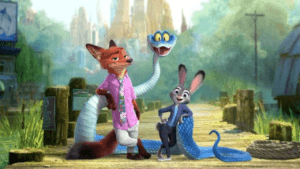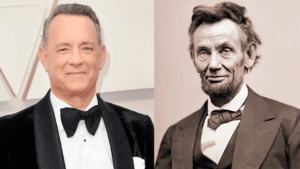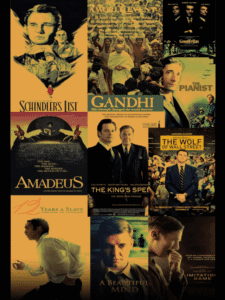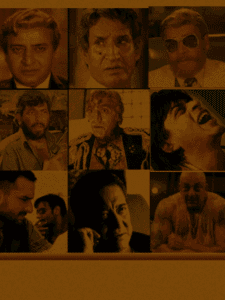In an age of loud opinions and louder confidence, Woody Allen’s cinema stands apart—awkward, hesitant, and full of questions. While many filmmakers use stories to declare meaning or deliver answers, Allen has spent over fifty years doing the opposite: turning the screen into a mirror of uncertainty. In his world, characters are unsure, messy, insecure, neurotic. They talk too much, think too much, love clumsily, and fail beautifully. And somehow, through all that, we recognize ourselves.
This is not just Allen’s style. It’s his philosophy. A belief that doubt isn’t something to overcome—it’s something to live with. That life, at its core, is unknowable. That love is fleeting, meaning is hard to find, and death waits just outside the frame. His films don’t escape this discomfort—they sit inside it. And that’s what makes them so deeply human.
The Self as Subject
From his earliest films, Woody Allen has played versions of himself. Nervous, insecure, intellectually obsessed, and emotionally fragile. He created a cinematic identity that was both self-critical and oddly confident in its lack of confidence. In Annie Hall (1977), Alvy Singer tells us he “would never want to belong to any club that would have someone like me as a member”—quoting Groucho Marx, but really just exposing his own inner conflict. He wants love, but he’s terrified of it. He craves meaning, but mocks the search.
This contradiction lies at the heart of Allen’s best characters. They want connection, but they sabotage it. They chase art and truth, but drown in overthinking. They can’t stop asking: “What if I’m wrong?” “What if this doesn’t last?” “What if there’s nothing at all?” It’s this cycle of questioning—not in search of clarity, but as a condition of living—that defines Allen’s work.
Love, and the Fear of Losing It
Romance is central to Allen’s films, but not in the traditional Hollywood sense. There are no grand declarations or fairy-tale endings. Instead, we get the slow erosion of love. In Manhattan, Husbands and Wives, Annie Hall, or Vicky Cristina Barcelona, people fall in and out of love quietly, often without understanding why. Relationships end not in explosions, but in sighs.
This, too, is a kind of self-doubt. Not knowing how to love. Not knowing how long love will last. Not trusting yourself to hold on to something beautiful. In Annie Hall, after the relationship falls apart, Alvy writes a play where he rewrites the ending—so he can keep the woman he lost. But even then, he knows it’s fiction. “You’re always trying to get things to come out perfect in art,” he says, “because it’s so difficult in life.”
That line might be the closest thing to a personal manifesto. Allen’s films don’t show love as a solved puzzle, but as an emotional echo—something we chase, lose, and remember.
The Weight of Thinking Too Much
Allen once joked that “he took a speed-reading course and read War and Peace in twenty minutes. It’s about Russia,” he said. That line, funny and absurd, also reflects his deeper struggle: the inability to stop thinking, but the fear that no amount of thinking will lead to truth.
In films like Crimes and Misdemeanors, Love and Death, or Deconstructing Harry, philosophy becomes a battleground. His characters debate morality, God, justice, and art. They read Dostoevsky, quote Nietzsche, argue about the Holocaust over lobster. But all this intellect never leads to peace. It only deepens the questions. “The universe is expanding!” young Alvy cries in Annie Hall. “What’s the point?”
This is what makes Allen’s cinema so honest. He doesn’t hide behind ideas. He exposes their limits. His characters don’t grow into wisdom—they live inside confusion. And that confusion is the real subject of the film.
Comedy as a Mask—and a Mirror
Despite the darkness in his work, Allen remains one of the greatest comic voices in film. His jokes are fast, sharp, and sometimes devastating. But beneath the laughter is always a layer of fear.
Comedy, for Allen, is not just a way to entertain. It’s a way to survive. A way to deal with death, rejection, and the absurdity of existence. In Hannah and Her Sisters, a character survives a suicide attempt and suddenly finds meaning in a Marx Brothers movie. It sounds ridiculous, but it’s profound. In the face of death, laughter becomes a form of rebellion.
In his films, comedy and tragedy often exist at the same time, within the same breath. That’s the essence of self-doubt—it’s never just one thing. It’s the joy and fear, the love and the loneliness, all happening at once.
Woody Allen: A Style of Hesitation
Allen’s filmmaking style matches his themes. His camera is often still, his cuts are simple, his dialogue drives the rhythm. He doesn’t dazzle with technique—he lets the characters speak, argue, fumble. His use of long takes and natural light creates a sense of realism, of watching real people in real time.
Even his visual choices reflect uncertainty. In Interiors, the silence is overwhelming. In Another Woman, the camera seems to observe rather than direct. There’s no cinematic ego here—just the patient unfolding of human emotion.
This restraint is not laziness. It’s a kind of humility. A recognition that life isn’t always cinematic. That people don’t always find meaning. And that art, sometimes, is just a place to ask questions together.
Legacy and Complications
Any discussion of Woody Allen today must acknowledge the controversy surrounding him. The personal accusations have deeply divided public opinion, and rightfully so. Some believe his work should be separated from his personal life; others cannot. That debate is not easily solved—and it sits outside the scope of this article.
What remains undeniable, however, is Allen’s influence. His style of writing, his themes, his character-driven stories—these have shaped modern independent cinema globally. Filmmakers like Noah Baumbach, Greta Gerwig, Asghar Farhadi, and even some parts of Majid Majidi’s quiet tension owe something to Allen’s focus on inner life.
Living with the Questions
Woody Allen’s cinema is not for those seeking answers. It’s for those who are willing to sit with the questions. To laugh through the anxiety. To love, knowing it might fall apart. To keep creating, even when the world feels meaningless.
In a time when everyone seems so sure—so confident in their politics, their identities, their beliefs—Allen reminds us of another path. A path of uncertainty. Of doubt. Of not knowing. And maybe, in that, there’s a different kind of honesty.
Because sometimes, the most radical thing a filmmaker can do… is admit they don’t have it all figured out.




























